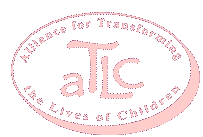

|
North American Invitational Summit:Bonding and Attachment in the FamilyAddressing the Root Causes of Social Problems at the Earliest Stages of LifeMarch 27-30, 2003, Santa Barbara, California |
||
|
|
Program SummaryThe Summit begins with dinner Thursday evening and ends at 3pm on Sunday. The opening session will feature Joseph Chilton Pearce (Magical Child) and Suzanne Arms (Immaculate Deception). The closing session will include Michel Odent, MD (The Farmer and the Obstetrician), and California Senator John Vasconcellos. The Summit is centered around nine plenary sessions, each addressing an area of the aTLC Blueprint. One participant has been asked to open each plenary session with a brief overview of the area, focusing on the question for that session: A panel of three to five participants then explores the question further, in a process known as Appreciative Inquiry (which differs from the usual approach of critically appraising what has been said). The panels are designed to stimulate creative thinking and brainstorming among all participants, as they break into small groups that intermingle, using a unique format, called The World Café, which enables people to interact deeply and creatively.
Evening sessions:
Symposia are usually conducted within a Paradigm of Control that focuses on a narrowly defined set of problems rather than possibilities, and on the delivery of solutions by experts who are assumed to have the answers. The Summit is based on a Paradigm of Connection, which draws on the collective wisdom of the entire group and is focused upon identifying and expanding possibilities rather than delivering solutions. While many of the participants will be accustomed to being presenters paid for their services, the Summit creates an opportunity for all of us to meet as peers and collaborators Participants will also be asked to join (or create their own) action-focused "pod" with other participants. Each pod will meet once a day to develop an action plan for promoting change at the societal or community level. These action plans will be shared with the entire group during the closing session on Sunday. Daily progress reports of each pod will be provided to participants in printed summaries, so that all conference participants can see what others are thinking and doing. Evening sessions will focus on the experience and knowledge of indigenous cultures, presented in a variety of creative non-linear formats, followed by opportunities to learn communication skills that enhance bonding and attachment. See schedule for details. There is a day of optional post-Summit workshops on Monday, March 31. Continuing Education (CE) Credits will be provided in these categories: RN, LM, LVN, LCSW, & MFT for a maximum of 30 hours. |
Contribute to Scholarship Fund Participant Networking Area
|